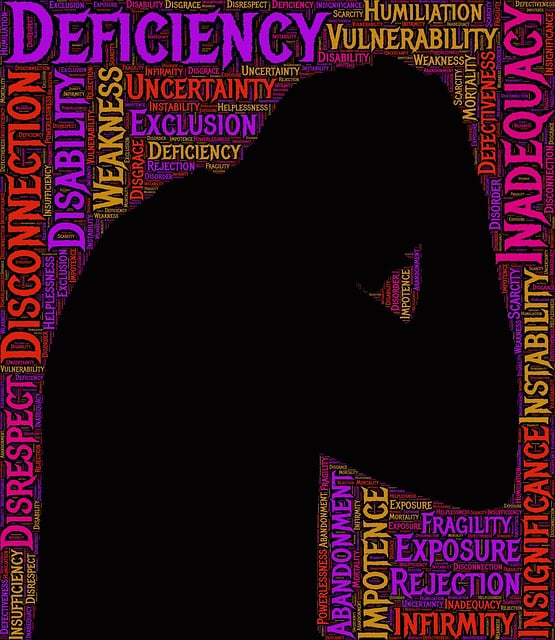Littleton Hebrew Speaking Therapy (LHST) provides critical crisis intervention services tailored to individuals from diverse cultural backgrounds, especially Hebrew speakers, offering immediate emotional support and practical solutions. Their approach combines active listening, empathy, and structured yet flexible techniques to stabilize clients during crises. LHST's comprehensive assessment process identifies triggers and personalizes strategies, utilizing methods like breathing exercises and cognitive reframing. They also offer stress management workshops, community outreach programs, and education to empower individuals with crisis resilience tools, breaking language barriers and fostering resilient communities. After a crisis, LHST continues supporting clients with compassion cultivation practices for long-term mental wellness.
“In times of crisis, effective intervention can be life-saving. This comprehensive guide offers therapists a deeper understanding of crisis intervention strategies, emphasizing the unique role of Littleton Hebrew Speaking Therapy in providing tailored support. From initial assessment and stabilization to building trust through communication and fostering post-crisis resilience, this article equips professionals with essential tools. Discover how Littleton Hebrew Speaking Therapy serves as a beacon of hope, offering specialized guidance to navigate crises successfully.”
- Understanding Crisis Intervention: A Brief Overview for Therapists
- The Role of Littleton Hebrew Speaking Therapy in Crisis Situations
- Assessing and Stabilizing: Initial Steps in Intervention
- Communication Strategies: Building Trust and Connection During a Crisis
- Post-Crisis Support: Fostering Resilience and Healing
Understanding Crisis Intervention: A Brief Overview for Therapists

Crisis intervention is a critical skill set for therapists, offering immediate support to individuals facing severe emotional distress or traumatic events. At its core, crisis intervention aims to provide a safe space, assess the situation, and offer practical solutions while ensuring the client’s well-being. For therapists at Littleton Hebrew Speaking Therapy, understanding cultural sensitivity in mental healthcare practice is paramount when assisting diverse populations during crises. Recognizing that each individual brings their unique experiences, backgrounds, and beliefs to therapy, therapists must adapt their interventions accordingly.
The process involves active listening, empathy, and a structured yet flexible approach. Therapists facilitate the expression of feelings, help clients identify coping mechanisms, and provide resources for ongoing support. Moreover, integrating stress management workshops within therapeutic practices empowers clients with tools to navigate future crises effectively. Additionally, community outreach program implementation can broaden access to crisis intervention services, reaching a wider range of individuals in need, especially those who may face barriers to traditional therapy.
The Role of Littleton Hebrew Speaking Therapy in Crisis Situations

In crisis situations, Littleton Hebrew Speaking Therapy plays a vital role by providing immediate and specialized support to individuals and communities facing emotional or psychological distress. Their trained therapists are equipped with effective tools tailored to diverse cultural backgrounds, including Hebrew-speaking populations. This is particularly significant in multicultural settings where access to culturally sensitive therapy can be limited. By offering services in Hebrew, the therapy center breaks down language barriers, ensuring that crisis intervention reaches those who might otherwise go underserved.
The center’s expertise extends beyond individual therapy. They actively engage in community outreach programs aimed at raising mental health awareness and implementing conflict resolution techniques designed to prevent escalation. Additionally, their mental health education programs are meticulously designed to empower individuals with coping strategies, fostering resilience in the face of crises. Through these initiatives, Littleton Hebrew Speaking Therapy not only intervenes during acute crisis but also works proactively to build resilient communities.
Assessing and Stabilizing: Initial Steps in Intervention

When initiating crisis intervention, Assessing and Stabilizing serve as the foundational steps to effectively guide individuals toward recovery. At Littleton Hebrew Speaking Therapy, we understand that during moments of crisis, immediate action is paramount. The initial assessment involves a thorough understanding of the person’s situation, including their emotional state, recent events, and any underlying mental health conditions. This step is crucial in identifying potential triggers and developing a tailored strategy to manage the current distress.
Stabilization techniques are then employed to ensure safety and security. This may include teaching simple yet powerful mood management strategies, such as deep breathing exercises or cognitive reframing, empowering individuals to gain some control over their emotions. Additionally, fostering inner strength development through encouragement and validation can significantly enhance their resilience during this challenging period. These initial interventions create a secure base from which further support and mental health education programs design can be effectively integrated.
Communication Strategies: Building Trust and Connection During a Crisis

In crisis intervention, establishing a strong connection and trust with individuals in distress is paramount. Effective communication strategies, such as active listening and open-ended questions, are essential tools for therapists and support personnel at organizations like Littleton Hebrew Speaking Therapy. Active listening involves giving the person in crisis your full attention, paraphrasing their concerns to ensure understanding, and reflecting their emotions back to them, fostering a sense of validation and security. This process not only helps in gathering crucial information but also builds an immediate rapport, creating a safe space for honest expression.
Empathy building strategies play a pivotal role in this context. By demonstrating emotional intelligence and genuine care, therapists can help individuals feel understood and supported. Mental health awareness training equips professionals with the skills to recognize subtle cues of distress and respond appropriately. Through empathetic communication, they can guide clients towards finding their own solutions, promoting resilience and self-efficacy. This approach not only aids in immediate crisis management but also paves the way for long-term mental wellness, as encouraged by expert practices at Littleton Hebrew Speaking Therapy.
Post-Crisis Support: Fostering Resilience and Healing

After a crisis, providing ongoing support is essential to help individuals heal and build resilience. This phase is crucial for fostering a sense of safety and security, allowing people to process their experiences and develop effective coping mechanisms. At Littleton Hebrew Speaking Therapy, we understand that every person’s journey towards recovery is unique, and our compassionate therapists are dedicated to tailoring support to meet individual needs.
One effective approach is incorporating compassion cultivation practices into therapy sessions. Encouraging positive thinking and teaching stress reduction methods can empower individuals to navigate future challenges with greater equanimity. By learning to cultivate a sense of self-compassion, people can develop resilience, making them better equipped to handle potential triggers and maintain emotional balance. This holistic process supports long-term healing and enables individuals to thrive in the aftermath of a crisis.
In light of the above discussions, crisis intervention strategies guided by professionals like Littleton Hebrew Speaking Therapy play a pivotal role in stabilising individuals during traumatic times. From initial assessment and communication strategies to post-crisis support, each step is crucial in fostering resilience and healing. By understanding these key components, therapists can effectively navigate crisis situations, providing essential care that resonates with diverse populations, including those who speak Hebrew as their primary language.









